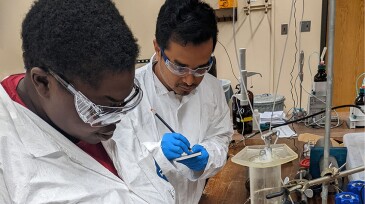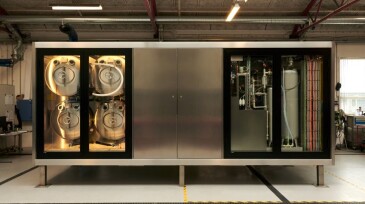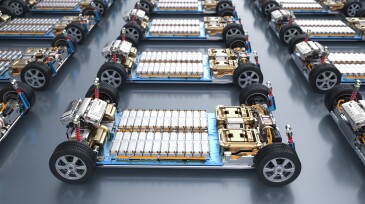R&D/innovation
Ongoing seismicity concerns and orphan well risks are pushing operators and regulators to explore alternatives for managing produced water.
The $26-million project will serve as a collaborative hub for research, engineering, and testing.
The NLR has released its 2025 US Geothermal Market Report, documenting 4 years of industry growth and providing policymakers and stakeholders with an updated overview of the US geothermal market.
-
A case study presented at ATCE took medical science to a new low—into the depths of the Permian Basin for application to downhole reservoir drainage diagnostics.
-
A survey of SPE members associated with a university, or their job/role to be faculty, collected information about the effect of the energy transition on recruiting students, strategic directions in academic programs, and maintaining a relevant curriculum for future careers.
-
More Students Going Into Petroleum Engineering Programs as Research Work Tilts to Alternative EnergyMore freshmen are enrolling in petroleum engineering, drawn by strong demand for graduates.
-
One is on Earth, and one is not. But the knowledge transfer between the oil patch and off-world has fueled meaningful technological advances for all involved.
-
Cemvita and ChampionX are launching a pilot project next year to turn an old oil field into one that may yield tons of hydrogen each day.
-
First production from the US supermajor's Arkansas lithium-rich asset is expected by 2027.
-
The advancement of the oil and gas industry hinges on its ability to transform digitally by applying high-quality data to illuminate its path forward.
-
An estimated $35 billion in investment is expected to pour into geothermal projects in Kenya and Ethiopia through 2050.
-
The oil and gas industry is embracing digital technology not just as a differentiator but as an enabler of innovation. The simple reality is that, if one doesn’t, they risk being out of the game.
-
The oil and gas industry’s sustainability and success depend on its ability to cultivate and nurture a skilled and knowledgeable workforce.













